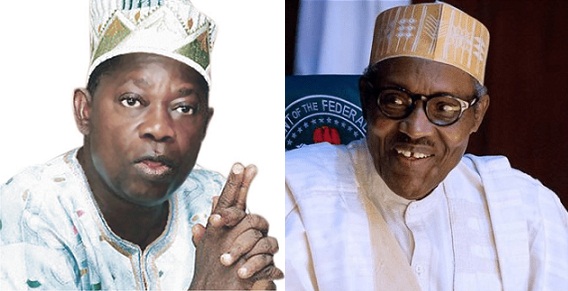In 2019 President Mohammed Buhari declared June 12 the new Democracy day, an action which was received with a lot of delight and a hint of resistance and confusion as to the reason for the change and the process by which it was achieved.
For 21 years, Nigeria has celebrated the feat of becoming a republic, one which was achieved, for the first time in 1963, then in 1979, in 1992 and finally on May 29, 1999 which is the current republican government we operate. Until last year, 2019, this feat was celebrated on the 29th of May every year being the date that Olusegun Obasanjo was sworn in as President and Commander-in-Chief of the Federal Republic of Nigeria after the transition from military rule which heralded Nigeria’s return to democratic rule in 1999 initiated by General Abdulsalami Abubakar.
In May of 2019, a declaration was published that the President had deemed the democracy day altered from May 29 to June 12. There was a question on people’s minds as to whether the President had the power to do so and if he did, whether he followed the right procedure. Section 5 of the Public Holiday Act of 1979 provides for alteration of a day appointed to be a public holiday stating thus:
“The Minister for Internal affairs (hereinafter referred to as “Minister”) may by public notice, when it appears to him in any special case that in any year it is expedient that a day appointed by section 1 of this Act to be kept as a public holiday should be kept as a public holiday, declare that such day shall not be kept as a public holiday and may appoint such other day as he may think fit to be kept as a public holiday instead of such day, and thereupon the day appointed shall be substituted for the day in such year appointed by this Act:”
The above provision says that where the Minister of Interior affairs, in a special circumstance, finds that it is beneficial to alter a date appointed as a public holiday in the Public Holidays Act, he may alter such date by public notice. By the provision of the Act, only the Minister of Internal Affairs has the authority to alter a date legally appointed as a public holiday by an Act of the National Assembly. The question then is “why was it the President who made the alteration of the date of democracy day?”
The President does not have the power to make alterations to the dates of public holidays whether provided for in the Act or not. However, the President can make policy directions or statements which will be published in the federal government gazette; which was actually what he did in May of 2019. The policy statement or declaration which the President made in May, 2019 did not have a force of law until June 10 when it was signed into law by the President via the Public Holidays Amendment Act 2019.
When the President made the declaration in 2019, it was merely a policy direction and had no legal force which is the reason that democracy day was celebrated twice in 2019; on May 29, before the Bill was signed into law and on June 12 after it was signed into law. The declaration was merely a policy statement as at May 29, without any legal authority as the alteration was not substantiated by legal enactment until June 10. After the declaration, the necessary amendments were effected in the Act and the amended Act passed through the National Assembly which is the body constitutionally empowered to amend any Act. The Bill to amend the Act was then signed into law on 10 June 2019 birthing the Public Holidays Amendment Act 2019 which now operates. Consequently, beginning from 2020, Democracy day will be celebrated on June 12 only.
The President’s decision to mark Democracy Day on June 12 is seen as an effort to pacify the South Western Nigeria. This part of the country had always set aside June 12 to remember Moshood Abiola’s stolen mandate and the annulled presidential election of 1993 which is believed to be the country’s freest and fairest in the history of Nigeria’s democracy. Moshood Kashimawo Olawale Abiola, popularly known as MKO Abiola was a Nigerian Yoruba businessman and politician. He ran for the presidency in 1993 but the election result was annulled by the then military head of state, General Ibrahim Badamasi Babangida, on the grounds that it was necessary to save the nation. He alleged that political activities preceding the election were inimical to peace and stability in Nigeria at the time.
June 12 carries a vast significance for a lot of Nigerians especially those from the South-West because of MKO Abiola and what his impact means to them. Now, it is a day that marks the celebration of democracy in Nigeria and will be celebrated heartily for its implication.
Written by Mbachu Chinenye Esq.





Amazing Article, I look forward to read more
Thank you…we look forward to providing more and better articles
We are happy Democracy came, let our leaders work to make us reap the fruits.
We can only hope and do our part